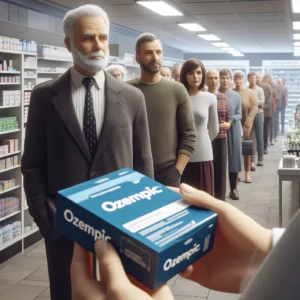Chiquita Banana Lawsuits Expose Company’s Ties to Colombian Paramilitary Group
In a landmark decision, a U.S. federal court in South Florida found multinational fruit company Chiquita Brands International liable for financing the United Self-Defence Forces of Colombia (AUC), a paramilitary group designated as a terrorist organization by the U.S. government. The civil case, brought by eight Colombian families whose relatives were killed by the AUC, resulted in Chiquita being ordered to pay $38.3 million in damages.
5 Key Points
- Chiquita Brands International was found liable for financing the AUC, a Colombian paramilitary group.
- The AUC engaged in widespread human rights abuses, including murdering suspected left-wing rebel sympathizers.
- Chiquita pleaded guilty in 2007 to making payments to the AUC between 1997 and 2004.
- The jury found Chiquita responsible for the wrongful deaths of eight men killed by the AUC.
- Chiquita intends to appeal the verdict, arguing that the claims have no legal basis.
The AUC’s Reign of Terror
The AUC, which claimed to defend landowners from left-wing rebels, more often acted as a death squad for drug traffickers. At its peak, the group had an estimated 30,000 members who engaged in intimidation, drug trafficking, extortion, forced displacement, and killings. The AUC launched brutal attacks on villagers suspected of supporting left-wing rebels, targeting trade unionists, banana workers, and others they perceived as a threat. The paramilitary group demobilized in 2006 after reaching a peace deal with the Colombian government. Still, some of its members went on to form new splinter groups that continue to be active.
Chiquita’s Involvement with the AUC
During a 2007 trial, it was revealed that Chiquita had made payments amounting to more than $1.7 million to the AUC between 1997 and 2004. Chiquita claimed it began making the payments after the AUC leader, Carlos Castaño, implied that staff and property belonging to Chiquita’s Colombian subsidiary could be harmed if the money was not provided. However, the plaintiffs argued that the company formed “an unholy alliance with the AUC” while expanding its presence in regions controlled by the paramilitary group. The regular payments continued even after the AUC was designated by the U.S. as a foreign terrorist organization in 2001, raising questions about Chiquita’s complicity in the group’s human rights abuses.
The Chiquita Banana Lawsuits
The class-action lawsuit against Chiquita concluded on Monday and focused on nine cases chosen from hundreds of claims against the banana company. The jury found the AUC responsible for eight of the nine murders examined and ruled that Chiquita had knowingly provided substantial assistance to the AUC, creating a foreseeable risk of harm. The families brought the lawsuit after Chiquita pleaded guilty in 2007 to making payments to the AUC, exposing the company’s involvement with the paramilitary group. Despite the verdict, Chiquita maintains that there is no legal basis for the claims and intends to appeal the decision. A second case against Chiquita, brought by another group of plaintiffs, is set to begin on July 15.
The Significance of the Verdict
Lawyers for the Colombian families praised the verdict, emphasizing the courage of the families who risked their lives to hold Chiquita accountable. The decision sets a precedent for corporate accountability in cases involving the financing of terrorist organizations and human rights abuses. Agnieszka Fryszman, one of the leading lawyers for the plaintiffs, stated that “the verdict does not bring back the husbands and sons who were killed, but it sets the record straight and places accountability for funding terrorism where it belongs: at Chiquita’s doorstep.” The Chiquita Banana Lawsuits remind multinational corporations of the importance of holding them responsible for their actions, mainly when they contribute to human rights violations and the loss of innocent lives.
FAQ
Q. Do you qualify for a lawsuit?
A. To see if you qualify, click here.
Q. What is the AUC?
A. The AUC, or United Self-Defence Forces of Colombia, was a Colombian paramilitary group designated as a terrorist organization by the U.S. government. The group engaged in widespread human rights abuses, including murdering suspected left-wing rebel sympathizers.
Q. How much did Chiquita pay the AUC?
A. Between 1997 and 2004, Chiquita made payments amounting to more than $1.7 million to the AUC.
Q. What was the outcome of the Chiquita Banana Lawsuits?
A. A U.S. federal court found Chiquita liable for financing the AUC and ordered the company to pay $38.3 million in damages to eight Colombian families whose relatives were killed by the paramilitary group.
Q. Why did Chiquita make payments to the AUC?
A. Chiquita claimed it began making payments to the AUC after the group’s leader implied that staff and property belonging to Chiquita’s Colombian subsidiary could be harmed if the money was not provided.
Q. What is the significance of the Chiquita Banana lawsuit verdict?
A. The verdict sets a precedent for corporate accountability in cases involving financing terrorist organizations and human rights abuses.
Citations:
Buschschlüter, V. (2024, June 10). Banana giant held liable for funding paramilitaries. BBC News. https://www.bbc.com/news/articles/c6pprpd3x96o






